Should you buy wireless headphones or earbuds?
Personal preference is a big factor.
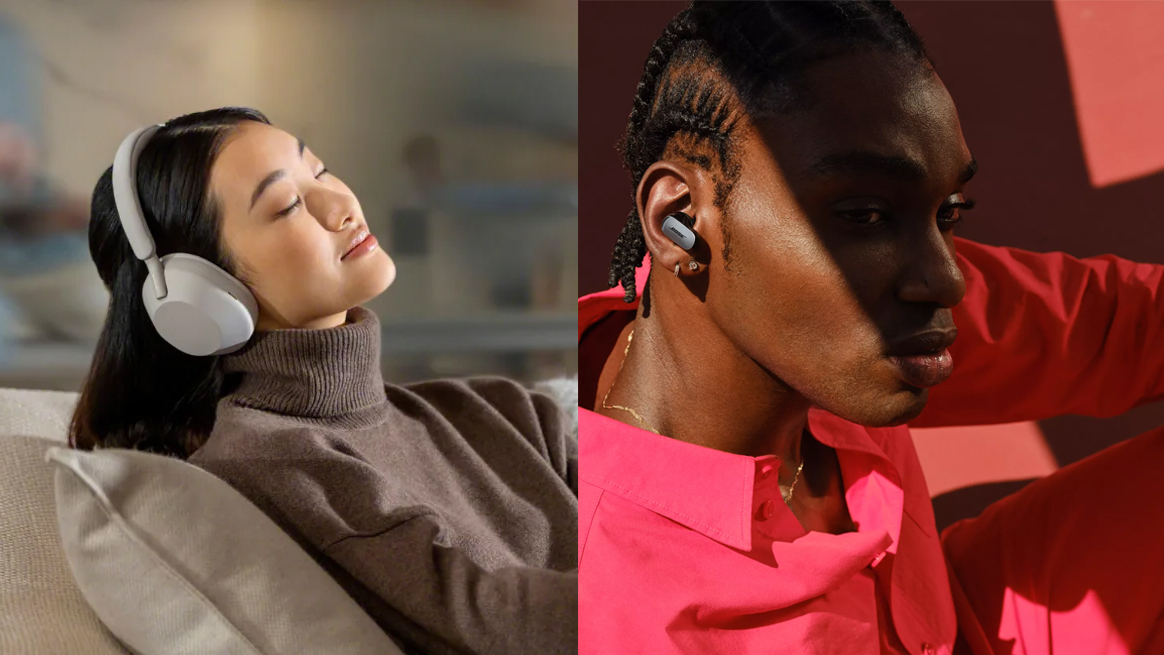
You may have found yourself staring at headphones or earbuds, either onscreen or on a store shelf, wondering which way to go. Go the over-ear headphone route or take the nimbler approach and pop in wireless earbuds instead.
It's not a matter of availability when great options abound in both premium and affordable categories, so it breaks down to what your preferences are, and how either type can bring out the best in them for you. This guide is about cutting through all that to help you make the right decision.
Wireless headphones vs. earbuds: Design
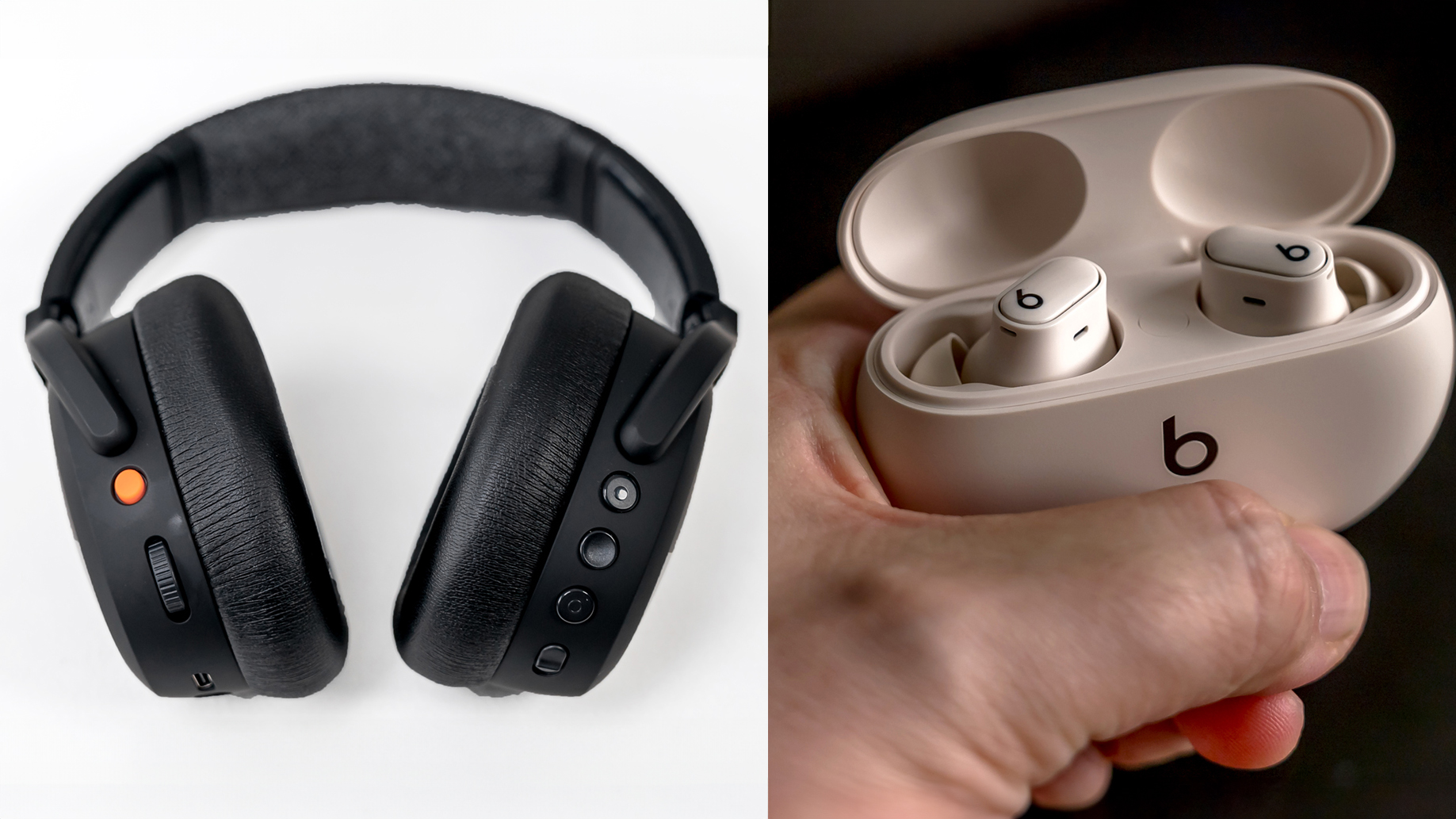
The initial differences are obvious — headphones are clearly a bigger footprint than earbuds. That carries implications for things like working out, commuting, travel, and battery life, among other things, simply because their additional size means you have to consider how to pack them. Some brands will make them fold in to lower the footprint and include a protective case, but not all do. And price doesn't always guarantee anything, either. Some cost less than $100 and come with a case, whereas others above $200 don't.
Still, there's an inherent advantage in being the bigger of the two. For one, over-ear headphones are harder to lose or misplace because they're so conspicuous. They also don't need to charge up as often because their batteries are considerably larger, but more on that later.
Wireless earbuds come in pairs that cradle inside cases that double as chargers. So long as the case has a charge, the earbuds keep replenishing every time you put them back in. Even with the case, most brands make them small enough to put in your pocket or small bag. The danger is either losing one of the earbuds or the whole package, which many have done in sometimes head-scratching or hilarious situations. So, while they're much easier to take with you anywhere, you have to be mindful not to let them slip through your fingers or end up in the wash with your laundry, among other examples.
Wireless headphones vs. earbuds: Fit and comfort
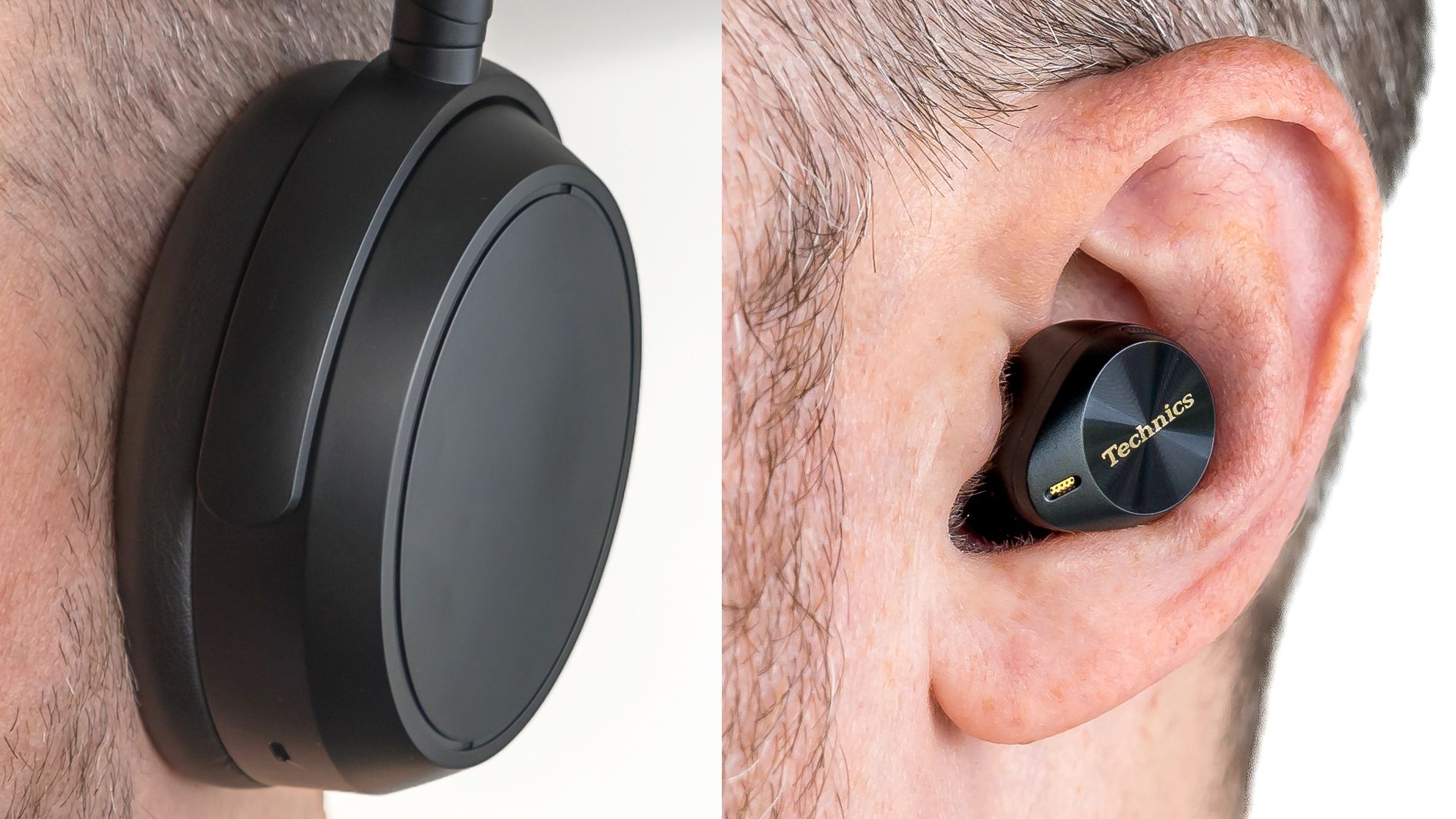
Then, you have to consider the fit and comfort involved. Are you more susceptible to feeling your ears pinch when headphone cushions sink into them? Or do you feel an itch after wearing earbuds for a while? Your past experiences may help you understand how general design principles around headphones and earbuds might affect you, but it's also worth noting that they're not all built the same way.
Manufacturers recognize this, which is why earbuds continue to get smaller and more ergonomic to accommodate a broader slate of ear types. Indeed, ears and ear canals are body parts that truly vary from one individual to another, so what might fit perfectly well for you may not work as well for someone else.
Be an expert in 5 minutes
Get the latest news from Android Central, your trusted companion in the world of Android
Covering your ears also means little sound can actually seep out, which is also one reason why active noise cancelation (ANC) is more effective.
Earbuds hold an advantage — at least those with ear tips — because you can try different sizes to find the most comfortable fit for you. You may even find yourself in a situation where you have to wear a different size for each ear. Some brands include hearing tests in their apps to help determine which tips passively seal off ambient noises to keep the sound clearer and balanced in your ears.
Headphones come with more limitations that way. It's common to see ear cups that swivel, which adds some give to contour to the shape of your head, much like an adjustable headband already does. However, you can't do anything about the shape of the cups themselves. At the same time, covering your ears also means little sound can actually seep out, which is also one reason why active noise cancelation (ANC) is more effective on over-ear headphones compared to earbuds.
Wireless headphones vs. earbuds: Features and noise cancellation
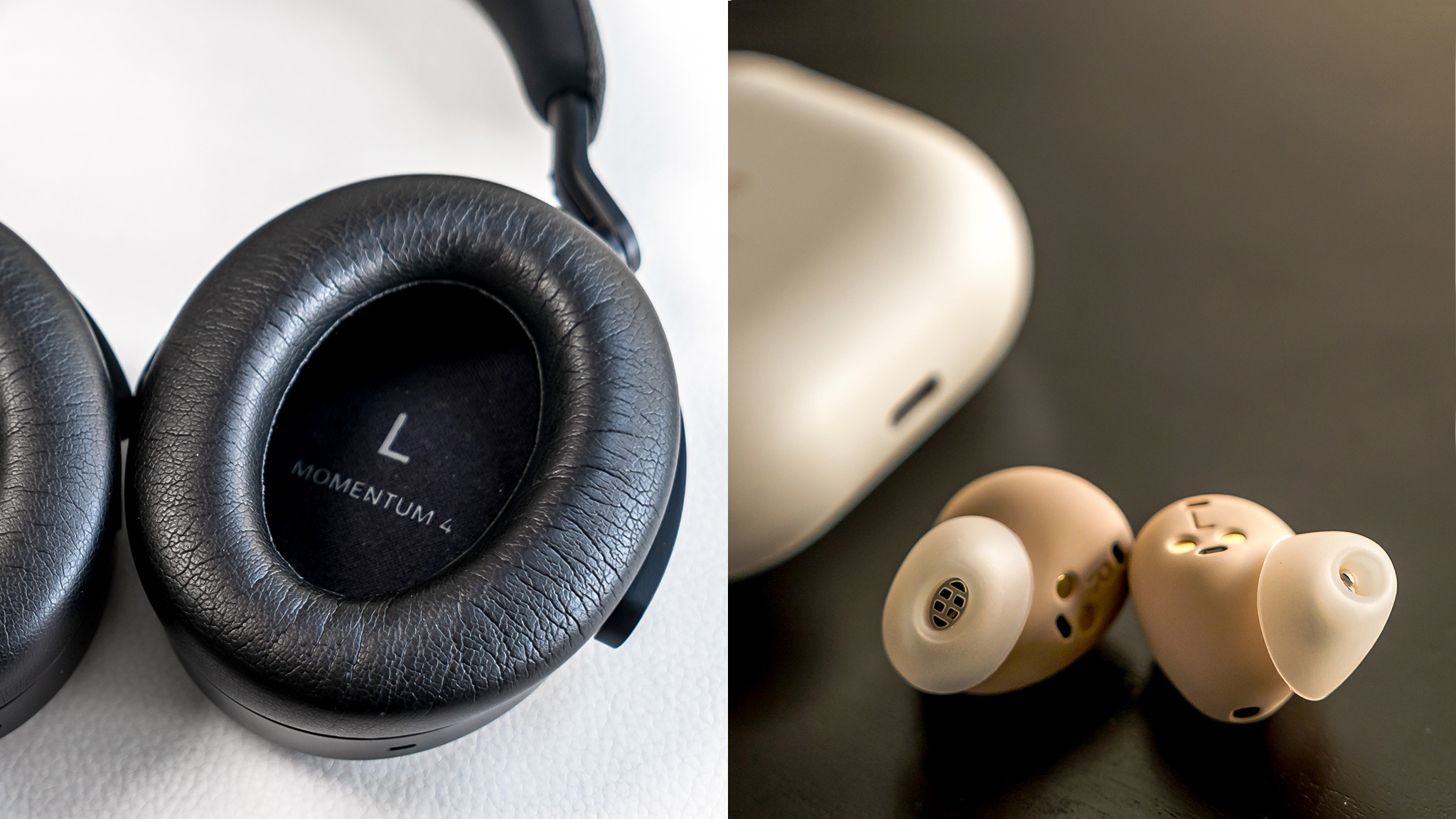
Again, space helps the best wireless headphones cover more ground from a physical standpoint. You're far more likely to get physical buttons to control certain features, though touch-sensitive controls are pretty common, too. You may even see a pair that is a hybrid of the two; with some buttons and touch-based gestures mixed together.
Some earbuds may give you a physical button on either side that can perform multiple tasks depending on a single press, double-pressing, triple-pressing, or press-and-hold. Most, however, use a combination of these gestures in a touch-based format, which is no guarantee they'll work reliably well all the time. There are brands that do it better than others, but no matter what, there's a slight learning curve in touching the right spots on either earbud.
ANC, plus transparency or ambient modes, are standard fare for most headphones and earbuds now, only your results will vary.
ANC, plus transparency or ambient modes, are standard fare for most headphones and earbuds now; only your results will vary. Half the battle is getting a good seal to passively isolate the sound you're getting from them, whereas the ANC uses the onboard microphones to "cancel" the ambient noises happening around you. The electronic part of the equation is hard to gauge because it depends on how good the brand is at it, as well as the situations you're in.
Headphones will naturally isolate sound better than earbuds can, but that's not to say there's always a massive gap between them. The best noise-canceling wireless earbuds can give the best noise-canceling wireless headphones a good run for their money, often because the same brands are routinely among the best in both categories.
Where earbuds usually win out is in durability, at least as it relates to water resistance.
The microphones also do the same job in piping in outside noises when you want to hear your surroundings. Quality is a matter of degree here, too, and neither side necessarily has a big advantage over the other, though you're likely to hear more background noise wearing earbuds because your ears are still exposed.
Where earbuds usually win out is in durability, at least as it relates to water resistance. It's rare to come across over-ear headphones with that kind of protection, whereas it's much easier to find earbuds at wildly different price points. Don't be surprised to see sub-$100 pairs that have the same water and dust resistance as other pairs more than double the cost.
That's hugely beneficial in the gym or out on a run for a few reasons. They can resist sweat more, feel lighter to wear, and are easier to slip into a bag or pocket when you're done.
Wireless headphones vs. earbuds: Sound quality
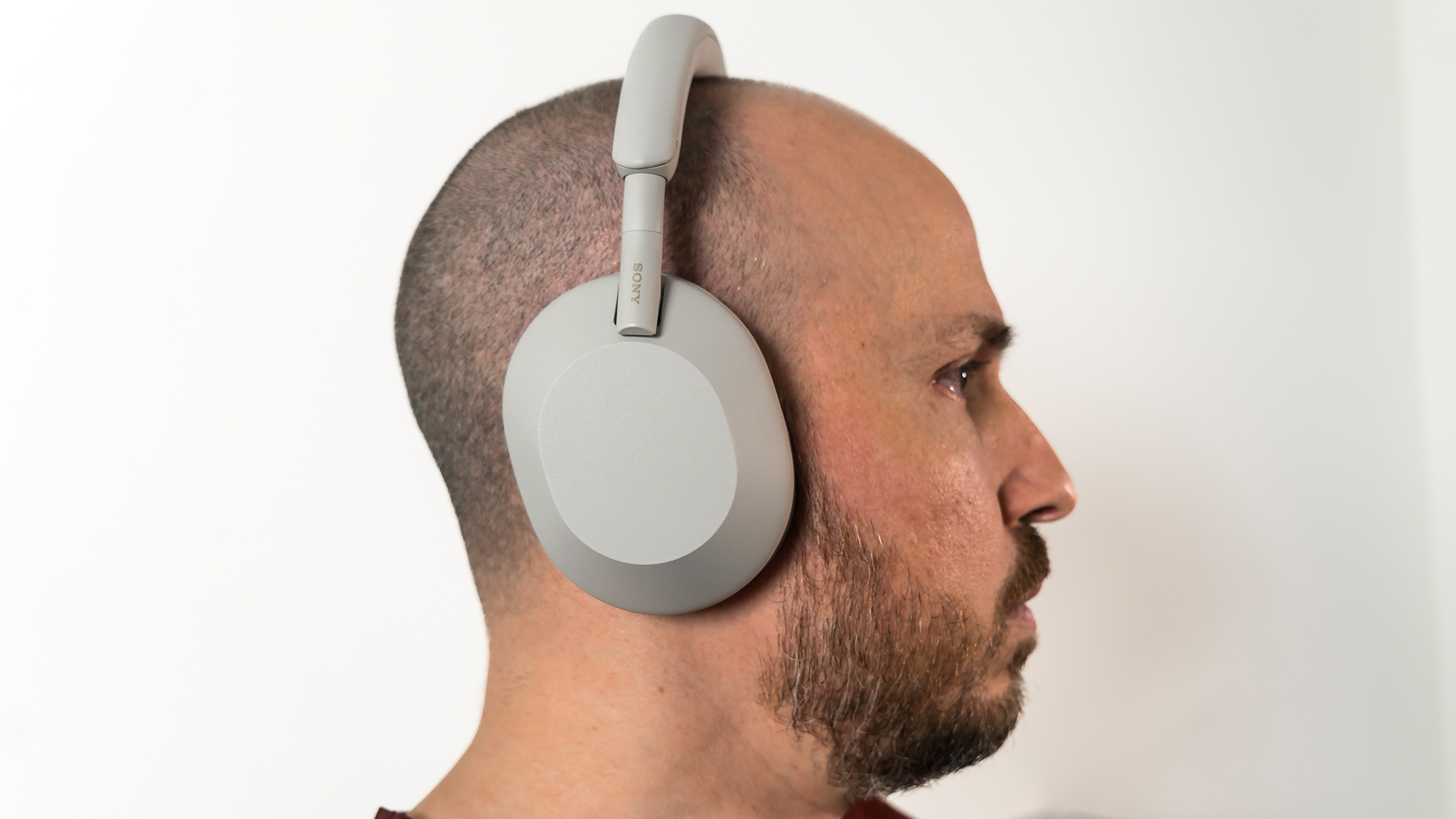
Headphones have a major advantage simply because the drivers inside are significantly larger, meaning they can pump out deeper bass, warmer mids, and brighter highs without having to push as hard. By comparison, earbuds are restricted by their size, so their most powerful drivers will struggle to match the same output.
It's also worth noting the physics and body chemistry at work. When your ears are covered, and sound comes out of the ear cups, your outer ears (known as the pinna) amplify the sound waves and funnel them into your ear canal (the cochlea). It's an intricate process we don't notice, but the pinna plays no role when using earbuds because they're nestled into the inner ear, which is one reason why they won't sound the same as headphones.
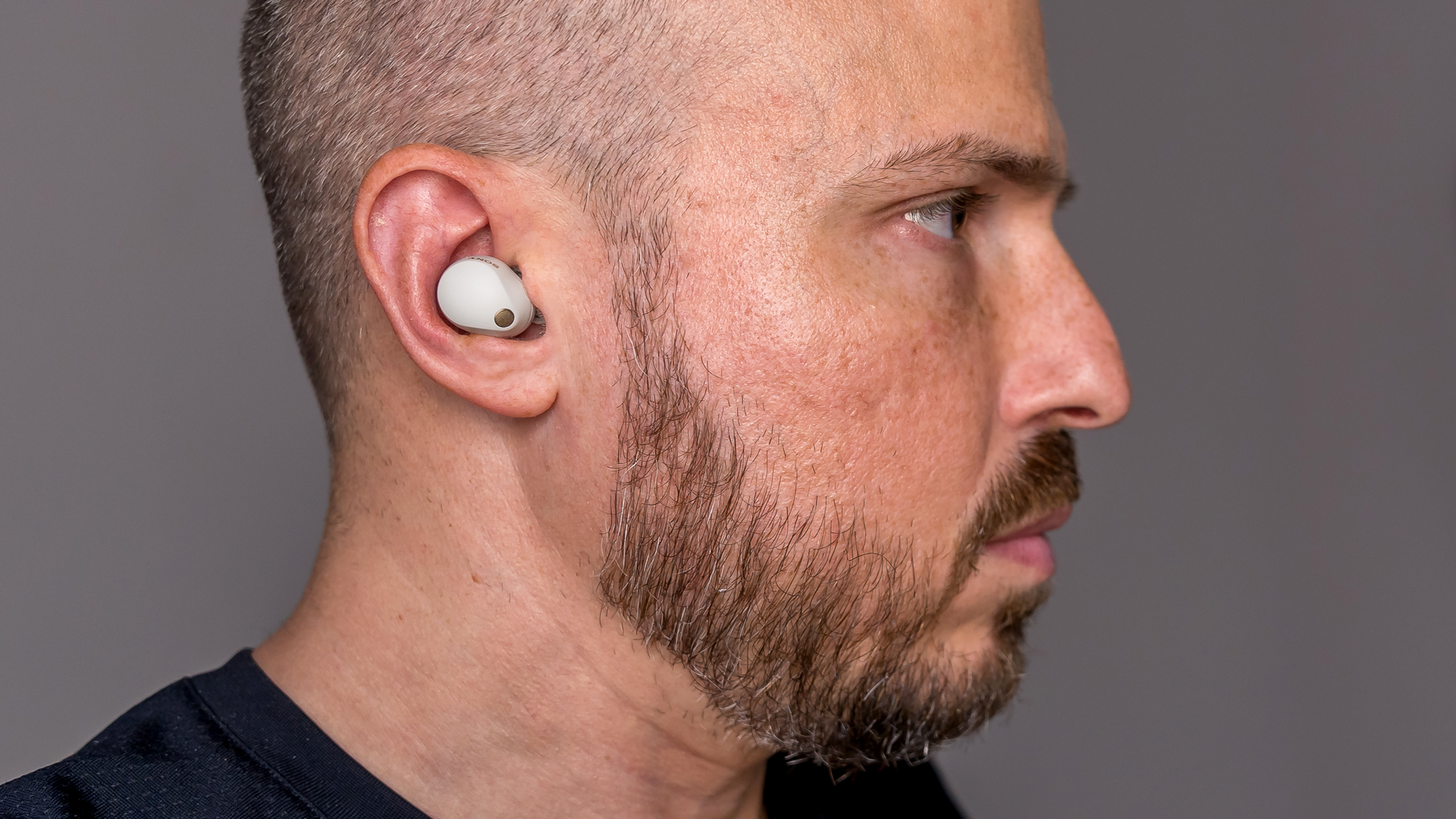
Just to be clear: you can get excellent clarity either way, thanks in large part to innovations in both categories that continue to improve performance. However, your source also matters. Playing compressed audio, like what you typically get from most streaming music services, may not bring out the best a pair of headphones or earbuds can muster. If you're looking for hi-res audio, you would need to ensure a few things first to get the sound quality you have in mind. Here, too, headphones have an advantage because so many of them also allow you to listen in wired mode.
With the onboard mics, you can make phone calls and talk to your voice assistant either way. The effectiveness has more to do with the quality of those mics than it does with the relative size of either the headphones or earbuds, so you could very much find a scenario where a good pair of earbuds outclass a pair of headphones.
Wireless headphones vs. earbuds: Battery life
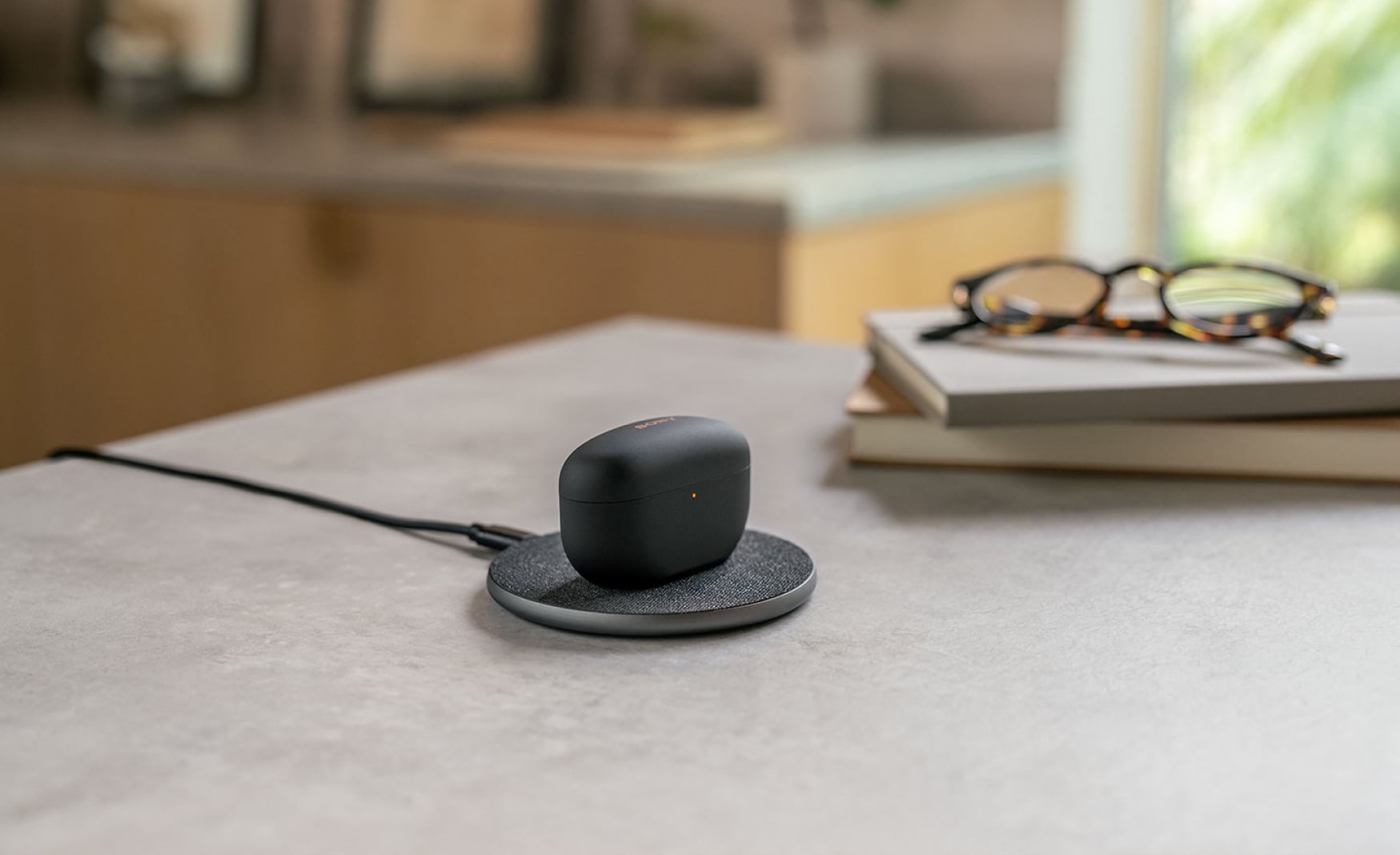
This really isn't a fair fight. Size matters, and headphones have the space to pack in larger batteries that trounce even the longest-lasting earbuds out there. There are nuances with the numbers, though. If you're looking for something that can last a long-haul flight, then headphones can usually oblige. But if most of your listening consists of shorter periods — and you care about longevity — it comes down to how often you have to charge.
Charging cases give earbuds a few extra full charges before their own battery needs a top-up. Many also support wireless charging for added convenience. It's just easy to pick up your phone after it's done and lay the earbuds case down.
The problem with repeated and constant charging is that it eventually saps capacity, which is why earbuds have a shorter lifespan than headphones do. On top of connecting to your playback device, Bluetooth connectivity is also necessary to keep the two earbuds in sync when using them, which isn't a factor with wireless headphones in that they're just a standalone piece that only connects to the device.
It won't matter as much if you expect to upgrade to new earbuds every couple of years, but in fairness, they are more prone to crapping out than headphones generally do. That's also why warranties can differ between these two categories, with manufacturers usually willing to replace malfunctioning earbuds, though not if the damage was because of water or sweat. Both headphones and earbuds are difficult to repair, so you won't see a recourse for that in most instances.
Making the right choice for you
A lot of it comes down to what you really want. Or, put in a different context what you think would fit best with your lifestyle and sonic preferences. For example, if you care most about getting the best sound and noise cancelation and don't mind the bulk, headphones are your best bet.
If you work out or run a lot, prefer to move around with less to carry around, and like the idea of pocket-sized headphones, then wireless earbuds are an ideal choice. They're simply more inconspicuous and convenient in ways that matter, even if the sound and noise cancelation won't be quite as dynamic.
Whatever you decide, you have excellent options to consider, from the best wireless headphones to the best wireless earbuds. On a budget? Consider the best cheap noise-canceling headphones or affordable wireless earbuds to find real value for less.

Ted Kritsonis loves taking photos when the opportunity arises, be it on a camera or smartphone. Beyond sports and world history, you can find him tinkering with gadgets or enjoying a cigar. Often times, that will be with a pair of headphones or earbuds playing tunes. When he's not testing something, he's working on the next episode of his podcast, Tednologic.
